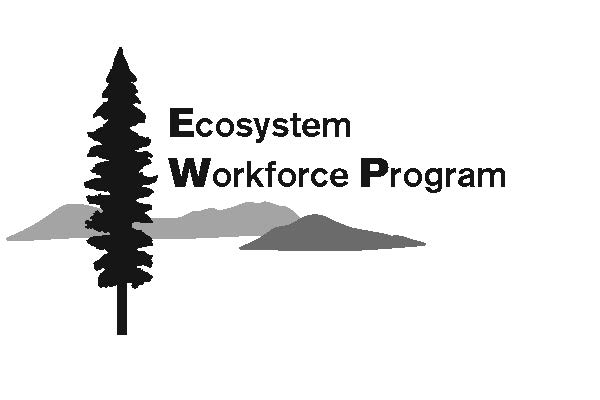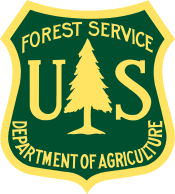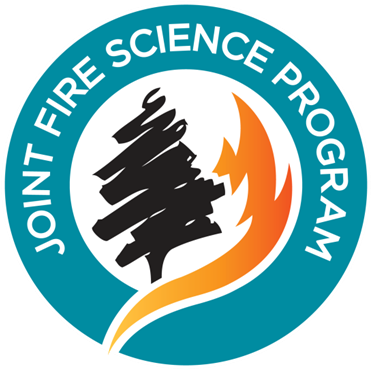Publications Library
. Reform forest fire management Science. 2015;349 (6254). Available at: http://www.sciencemag.org/content/349/6254/1280.full?utm_campaign=email-sci-toc#ref-3.
. Relations between soil hydraulic properties and burn severity International Journal of Wildland Fire. 2015;Online early.
. Restoring fire-prone Inland Pacific landscapes: seven core principles Landscape Ecology. 2015;Online .
. Spatially and socially segmenting private landowner motivations, properties, and management: A typology for the wildland urban interface Landscape and Urban Planning. 2015;137.
. Wildland fire as a self-regulating mechanism: the role of previous burns and weather in limiting fire progression Ecological Applications. 2015.
. An accuracy assessment of the MTBS burned area product for shrub-steppe fires in the northern Great Basin, United States International Journal of Wildland Fire. 2014;24. Available at: http://dx.doi.org/10.1071/WF14131.
. Contrasting Spatial Patterns in Active-Fire and Fire- Suppressed Mediterranean Climate Old-Growth Mixed Conifer Forests PLoS ONE. 2014;9(2).
. Correlations between components of the water balance and burned area reveal insights for predicting forest fire area in the southwest United States International Journal of Wildland Fire. 2014;Online early. Available at: http://dx.doi.org/10.1071/WF14023.
Defining extreme wildland fires using geospatial and ancillary metrics. International Journal of Wildland Fire. 2014;On-line early.
. The Effectiveness and Limitations of Fuel Modeling Using the Fire and Fuels Extension to the Forest Vegetation Simulator Forest Science. 2014;60(2). Noonan-WrightEt_2014_ForSci_CustomFuelModel.pdf (435.82 KB)
Noonan-WrightEt_2014_ForSci_CustomFuelModel.pdf (435.82 KB)
. Is fire exclusion in mountain big sagebrush communities prudent? Soil nutrient, plant diversity and arthropod response to burning. International Journal of Wildland Fire. 2014;23(3).
. Severity of an uncharacteristically large wildfire, the Rim Fire, in forests with relatively restored frequent fire regimes Forest Ecology and Management. 2014;328.
. Climate stress increases forest fire severity across the western United States Ecology Letters. 2013.
. Influence of climate and environment on post-fire recovery of mountain sagbrush. International Journal of Wildland Fire. 2013;On-line early.
Managing Forests and Fire in Changing Climates. AAAS; 2013. ScienceVol342Stephens.pdf (613.65 KB)
ScienceVol342Stephens.pdf (613.65 KB)
. Previous Fires Moderate Burn Severity of Subsequent Wildland Fires in Two Large Western US Wilderness Areas Ecosystems. 2013;17. Available at: http://www.treesearch.fs.fed.us/pubs/44942.
. Eco-Evolutionary Responses of Biodiversity to Climate Change. Nature Climate Change. 2012;2(10):5. Available at: http://www.nature.com/nclimate/journal/v2/n10/full/nclimate1588.html.
Effects of Ungulate Herbivory on Aspen, Cottonwood, and Willow Development Under Forest Fuels Treatment Regimes. Forest Ecology and Management. 2012;276:8. Available at: http://www.sciencedirect.com/science/article/pii/S0378112712001843.
Fourmile Canyon Fire Findings. Fort Collins, CO: US Department of Agriculture, Forest Service, Rocky Mountain Research Station; 2012:110. Available at: http://www.fs.fed.us/rm/pubs/rmrs_gtr289.html.
. Grassland Response to Herbicides and Seeding of Native Grasses 6 Years Posttreatment. Invasive Plant Science and Management. 2012;5:6. Available at: http://www.bioone.org/doi/abs/10.1614/IPSM-D-11-00050.1?journalCode=ipsm.
A physiological trait-based approach to predicting the responses of species to experimental climate warming. Ecology. 2012;93:8. Available at: http://www.esajournals.org/doi/pdf/10.1890/11-2296.1.
Research and development supporting risk-based wildfire effects prediction for fuels and fire management: status and needs. International Journal of Wildland Fire. 2012.
. Spatio-temporal prediction of site index based on forest inventories and climate change scenarios. Forest Ecology and Management. 2012;279:15.
. Strategic planning for instream flow restoration: a case study of potential climate change impacts in the central Columbia River basin. Global Change Biology. 2012;18:16. Available at: http://onlinelibrary.wiley.com/doi/10.1111/j.1365-2486.2012.02773.x/abstract.
. Topographic Variation in Structure of Mixed-Conifer Forests Under an Active-Fire Regime. Ecosystems. 2012;15(7):13.





